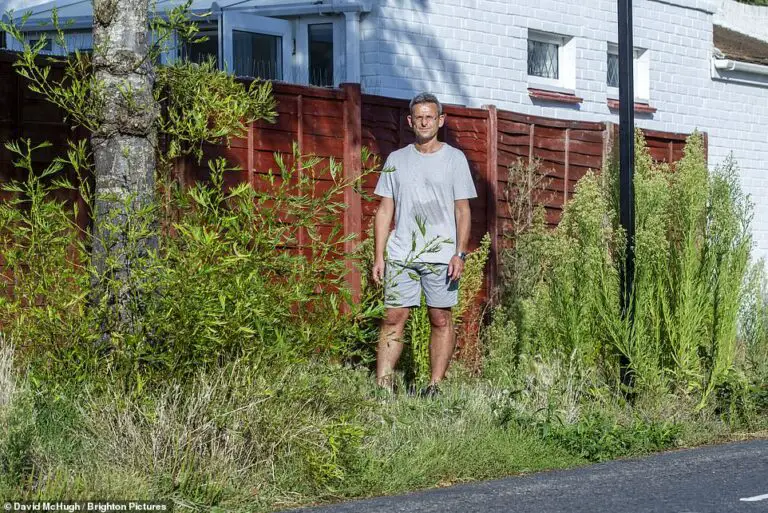Overgrown Weeds Plague Brighton Streets, Stir Controversy
Nature Takes Over
Some of them stand up to five feet tall and completely block pathways used by children to get to school.
The weeds stray across pathways and pavements, climb lamp posts and signs and leave the elderly and disabled fearful of leaving their homes without a car.
Brighton’s Battle with Weeds
Brighton has become the perfect example of how quickly nature reclaims the street if weeds are left unchecked. But the ‘rewilding’ of the seaside city has become a hot issue, and almost everyone has an opinion.
Controversial Ban
Visitors say the weed infestation is making the normally dapper Regency resort look very down-at-heel, and councillors say their email in-boxes are full of angry complaints. The cause of the weed problem is the banning, by the Green-led council in 2019, of glyphosate and other herbicides in the city.
Glyphosate is the active ingredient in many of the weed killers on sale in Britain and it has been claimed is a potential cause of cancer.
Residents Take Matters Into Their Own Hands
The local authority has blamed several factors, including Brexit, for the infestation, saying it has affected recruiting staff and ordering equipment. But Brighton & Hove City Council caused fury earlier this year when it asked residents to work unpaid to weed pavements, kerbs, and paths near their homes.
Mixed Reactions to DIY Weed Control
While some welcomed the idea as an opportunity to engage with the community and promote a sense of responsibility, others found it absurd. Michael Elliott, 70, a retired accountant in Hove, said, ‘We pay nearly £3,000 Council Tax a year for services in this city. The bin collection is atrocious and now the council is asking us to weed our own roads. It’s just a joke!’
Safety Concerns
Cllr Anne Meadows, Conservative councillor for Westdene and Hove Park, emphasized the safety aspect: ‘People are getting injured. I’ve seen young children on their scooters falling off and ending up in tears because of weeds on the pavements.’
Changing Leadership
The Greens were ousted from office in the May election, and residents are now looking at the Labour-led council to come up with a plan. But many remain frustrated with the lack of action, and some residents have resorted to taking matters into their own hands.
Calls for a Clear Strategy
Residents like Anna Fox, a nurse, understand the banning of dangerous herbicides but believe there should have been a strategy in place to deal with the resultant weed growth.
Council’s Response
The council has invested in new measures, including mechanical sweepers, weed rippers, and specialist strimmers in a bid to curb the problem. However, residents say there aren’t enough machines or workers.
Injuries and Costs
In 2021-22, at least eight elderly people were hospitalized with injuries due to falls caused by overgrown weeds. Pets have also been affected, with grass seeds causing issues and leading to costly vet bills.
Public Frustration
Cllr Ivan Lyons, a Conservative councillor, described the situation as ‘shocking’ and criticized the lack of a coherent policy to deal with the problem. Many residents have voiced their discontent with the state of their streets and have resorted to weeding the pavements themselves, sometimes using harmful weedkillers.
A Continuing Challenge
With Britain enjoying an Indian summer, residents believe the weed problem is likely to persist for a few more weeks. They hope the Labour-led council will take effective action soon.
A Call for Solutions
In a statement, Councillor Tim Rowkins acknowledged the urgency of the weed issue and stressed the need for a new weed management policy. He highlighted the council’s commitment to ensuring safe and accessible streets while also promoting biodiversity through reduced herbicide use.

